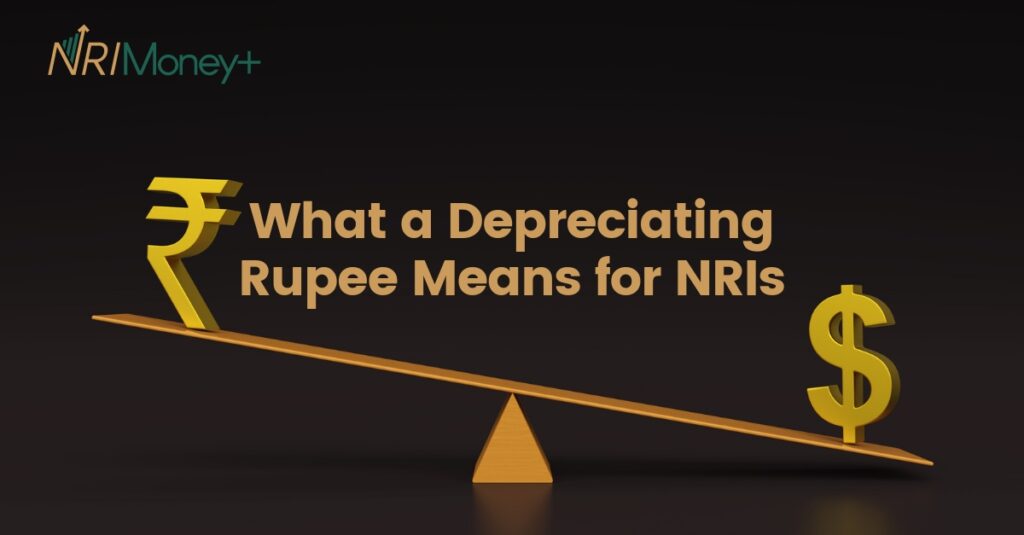In 2022, the Indian Rupee has lost 3.5 percent of its value versus the US dollar. The Rupee has lost more than 1.2 percent in the last month alone. Year-to-date in 2017, the Rupee was worth Rs. 64.60 against the dollar, compared to Rs. 64.60 five years earlier.
The continuous worldwide geopolitical tensions, the rise in oil costs, a lack of food imports, and the concomitant rise in inflation are the causes of this rapid drop. While investing in assets or spending in Indian currency in a foreign country may become more expensive, there are opportunities for an NRI to profit from. If you are an NRI investing in your home country of India, the devaluation in the Indian currency means that every dollar you repatriate home is worth a lot more.
Ground Reality
Inflationary pressures have prompted central banks around the world to limit market liquidity, resulting in an interest rate hike. With a 10 to 20 basis point increase in interest rates applicable to NRE and NRO accounts for particular investment tenures, this decision has made domestic fixed deposit investments more profitable. New bonds issued at higher interest rates have a similar effect, making debt mutual funds more appealing to NRIs.
Stock Market Angle
NRIs frequently borrow money from outside the country and invest it in India, where interest rates are lower and the US dollar is increasing. During the lockdown, the allure of the Indian stock market enticed many NRIs in the Gulf to borrow money from UAE-based financial institutions and invest it in the Indian stock market.
These low lending rates abroad and higher returns on investments in the Indian stock markets may have been a smart move until the rise of the Ukraine-Russian war and its after-effects of price hikes, supply disruptions, and inflation. With lending rates on the rise and the current volatility in the Indian stock market, it may not prove profitable.
Every investor should be aware that an equity investment is susceptible to market volatility. Borrowing money to invest in risky assets is a money mistake that should be avoided. Risk appetite, time horizon, and market cycle should all be considered while making investments here.
Home Loans
When the value of the Rupee is falling, real estate is a good place to invest in. NRIs have spent most of their money on real estate, especially those in the Gulf who plan to retire and move back to their home country. With the Rupee going down in value, NRIs who already have home loans in India can now pay off loans with a higher value for the same EMIs as before.
Income Accrual
The two main things that eat away at your savings are taxes and inflation. Even though inflation can’t be stopped, the right portfolio mix can help reduce risks. Also, smart management of investments can help people pay less in taxes and save more money.

Donald G. is the Principal Consultant at NRI Money+. He specialises in creating personalised financial plans for NRIs (Non-Resident Indians) and HNI (High Net-worth Individuals).



